Premium Only Content
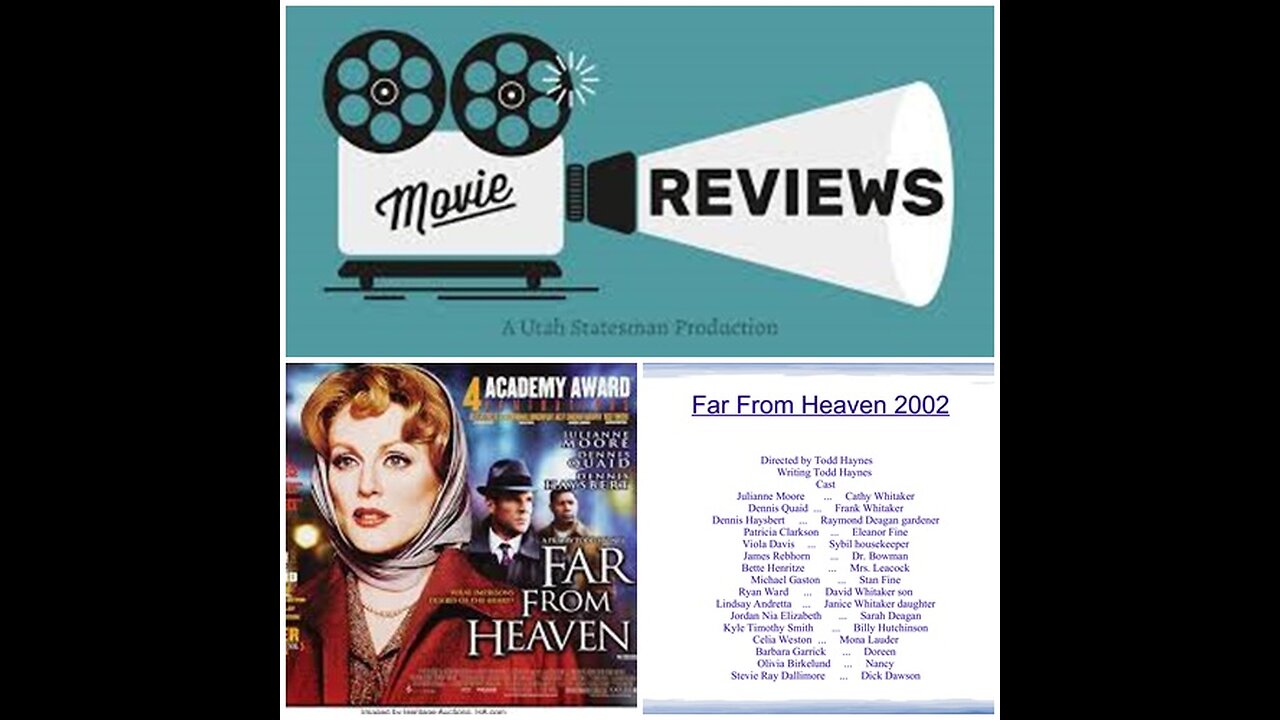
Far From Heaven 2002 Movie Review
Far From Heaven (United States, 2002)
Welcome to the world of "Father Knows Best", white picket fences, and brilliant fall colors. Todd Haynes' Far From Heaven takes us to Hartford, Connecticut, circa 1957. However, unlike most traditional period piece dramas, the intention here isn't just to replicate an American community as it was a half-century ago, but to emulate that community as it would have been portrayed in a movie of the era. One of Haynes' goals in crafting Far From Heaven is to emulate the so-called "women's films" of Douglas Sirk. In terms of style, visual approach, and general thematic content, Haynes has come as close as it's possible to in re-creating a '50s domestic melodrama for '00s consumption.
It would have been easy for Haynes to stray into parody - some of the more quaint elements are ripe for it. But, by retaining a high degree of emotional honesty and by never betraying the integrity of the characters, Haynes avoids the misstep. In doing so, he proves that this kind of melodrama, as outdated as it might at first seem, remains a valid form of cinematic expression. Far From Heaven begins almost as a nostalgic excursion, but quickly detours into a powerful and telling story that examines forbidden love, racial tension, and other issues that are as valid today as they were in the 1950s.
Cathy Whitaker (Julianne Moore) has a seemingly perfect life. Her husband, Frank (Dennis), is a recognized TV salesman. As per the American dream, she has two children and a comfortable home. She is content with the way things are, until Frank inadvertently provides a shock to her system. One night, when he is supposedly working late, Cathy hand-delivers him dinner, only to find him in a torrid embrace with another man. Afterwards, Frank confesses that he has always had homosexual feelings and promises to seek out a doctor to help him "beat this thing." While Frank is struggling with his sexuality, Cathy finds herself drawn to the quiet, kind gardener, Raymond (Dennis Haysbert). Raymond is black, and, on an occasion when he and Cathy are seen in public, a firestorm of nasty rumors begins. Raymond's idealistic belief that color should not be a social barrier are soon put to the test, and Cathy finds that her platonic relationship with Raymond is as much of a danger to her family as is Frank's homosexuality.
For his inspiration, Haynes has used Sirk's All That Heaven Allows. That movie tells of an older widow (played by Jane Wyman) who falls for a younger man (Rock Hudson), and, as a result of the relationship, faces the disapproval of her friends, family, and neighbors. Haynes has taken the basic theme of forbidden love and expanded it, widening the boundaries and showing it in two potentially inflammatory incarnations. Homosexuality was very much a taboo subject in the 1950s, and interracial relationships were looked down on by those in both the white and black communities (the thought being that one should stick to one's own "kind").
Visually, Far From Heaven is easily one of the most stunning non-special effects intensive motion pictures of the year. The colors, which are rich and warm, are designed to evoke the vibrant Technicolor images used by Sirk. Many of the scenes take place in the Northeast during the Fall (despite being set in Hartford, they were filmed in New Jersey), and the brilliance of the multi-hued leaves comes across on screen. Elmer Bernstein's score, which uses elements from the music of All That Heaven Allows, is a fitting audio companion for the visuals and the story they present.
Donning a blonde wig, Julianne Moore makes her second appearance for Haynes (she previously starred in Safe). It's an effective, understated performance that avoids going over-the-top into the realm of the caricature. Dennis Quaid plays against type as a bitter, conflicted man trying to cope with his homosexuality. And Dennis Haysbert, who made this movie while working on the weekly TV series "24", gives a strong portrayal of the overly optimistic gardener. Support is provided by Patricia Clarkson as Cathy's best friend, Eleanor.
Haynes' style and approach draw the viewer in gently, but firmly. Once we are established in the seemingly-perfect world of Cathy and Frank, he allows their marriage and their lives to unravel before our eyes. Far From Heaven is not "realistic" in the traditional sense of the word (Haynes calls it "hyper-realistic"), but the emotions of the characters are genuine, and we feel for them and with them. In the end, Far From Heaven tells a simple story, but there's nothing remotely simple about the impact it has upon the viewer.
Far From Heaven (United States, 2002) Video link https://youtu.be/mYI1do53uFo
Director: Todd Haynes
Cast: Julianne Moore, Dennis Quaid, Dennis Haysbert, Patricia Clarkson
Screenplay: Todd Haynes
Cinematography: Edward Lachman
Music: Elmer Bernstein
U.S. Distributor: Focus Films
Run Time: 1:47
U.S. Release Date: 2002-11-08
MPAA Rating: "PG-13" (Profanity, Violence)
Genre: DRAMA
Subtitles: none
Theatrical Aspect Ratio: 1.85:1
Directed by Todd Haynes
Writing Credits Todd Haynes ... (written by)
Cast
Julianne Moore ... Cathy Whitaker
Dennis Quaid ... Frank Whitaker
Dennis Haysbert ... Raymond Deagan
Patricia Clarkson ... Eleanor Fine
Viola Davis ... Sybil
James Rebhorn ... Dr. Bowman
Bette Henritze ... Mrs. Leacock
Michael Gaston ... Stan Fine
Ryan Ward ... David Whitaker
Lindsay Andretta ... Janice Whitaker
Jordan Nia Elizabeth ... Sarah Deagan
Kyle Timothy Smith ... Billy Hutchinson
Celia Weston ... Mona Lauder
Barbara Garrick ... Doreen
Olivia Birkelund ... Nancy
Stevie Ray Dallimore ... Dick Dawson
Mylika Davis ... Esther
Jason Franklin ... Photographer
gregory Marlow ... Reginald Carter
C.C. Loveheart ... Marlene
June Squibb ... Elderly Woman
Laurent Giroux ... Man with Mustache
Alex Santoriello ... Spanish Bartender
Matt Malloy ... Red Faced Man
J.B. Adams ... Farnsworth
Kevin Carrigan ... Soda Jerk
Chance Kelly ... Tallman
Declan Baldwin ... Officer #1
Brian Delate ... Officer #2
Pamela Evans Haynes ... Kitty (as Pamela Evans)
Joe Holt ... Hotel Waiter
Ben Moss ... Hutch's Friend
Susan Willis ... Receptionist
Karl Schroeder ... Conductor
Lance Olds ... Bail Clerk
Johnathan McClain ... Staff Member #1
Nicholas Joy ... Blond Boy
Virl Andrick ... Blond Boy's Father
Jezabel Montero ... Hooker
Geraldine Bartlett ... Woman at Party
Ernest Rayford ... Glaring Man
Duane McLaughlin ... Jake
Betsy Aidem ... Pool Mother
Mary Anna Klindtworth ... Pool Daughter
Ted Neustadt ... Ron
Thomas Torres ... Band Leader
Blondell Cooper ... HostessFar from Heaven
Roger Ebert November 15, 2002
Todd Haynes' "Far from Heaven" is like the best and bravest movie of 1957. Its themes, values and style faithfully reflect the social melodramas of the 1950s, but it's bolder, and says out loud what those films only hinted at. It begins with an ideal suburban Connecticut family, a husband and wife "team" so thoroughly absorbed into corporate culture they're known as "Mr. and Mrs. Magnatech." Then it develops that Mr. Magnatech is gay, and Mrs. Magnatech believes that the black gardener is the most beautiful man she has ever seen.
They are the Whitakers, Cathy and Frank (Julianne Moore and Dennis Quaid). They live in a perfect split-level house on a perfect street, where the autumn leaves are turning to gold. Their little son is reprimanded for rude language like "Aw, shucks." Of course she drives a station wagon. Mona Lauder (Celia Weston), the local society editor, is writing a profile about their perfection.
One slight shadow clouds the sun. While being interviewed by Celia, Cathy sees a strange black man in the yard, and walks outside to ask, ever so politely, if she can "help" him. He introduces himself: Raymond Deagan (Dennis Haysbert), son of their usual gardener, who has died. Cathy, who has a good heart, instinctively reaches out to touch Raymond on the shoulder in sympathy, and inside the house the gesture is noted by Celia, who adds to her profile that Cathy is a "friend to Negroes." Frank Whitaker is one of those big, good-looking guys who looks like a college athlete gone slightly to seed, or drink. One night Cathy has to pick him up at the police station after an incident involving "one lousy cocktail." In another scene we see him enter a gay bar, where in these days long before Stonewall, the men exchange furtive, embarrassed glances as if surprised to find themselves there. One night Cathy makes the mistake of taking Frank his dinner when he works late, and opens his office door to find him kissing a man.
The movie accurately reflects the values of the 1950s, and you can see that in a scene where Frank says his homosexuality makes him feel "despicable" but he's "going to lick this problem." The key to the power of "Far from Heaven" is that it's never ironic; there is never a wink or a hint that the filmmakers have more enlightened ideas than their characters. This is not a movie that knows more than was known in 1957, but a movie that knows exactly what mainstream values were in 1957--and traps us in them, along with its characters.
Frank and Cathy have no sex life. Cathy is not attracted to Raymond so much sexually, however, as she's in awe of his kindness and beauty, which is so adamantly outside her segregated world. She hardly knows how to talk with him. At one point she says that "Mr. Whitaker and I support equal rights for the Negro." Raymond looks at her level-eyed and says, "I'm happy to hear that." He has a business degree, but has inherited the same gardening business that supported his father; a widower, he dotes on his 11-year-old daughter.
The plot advances on a public and a private front. Publicly, word starts to get around that Cathy has been "seen" with the black gardener. Only that--"seen." Once when they take a ride in his truck, they enter a black diner, where their reception is as frosty as it would have been in a white place. Neither race approves of mixed couples. Soon people start to "talk," and Frank, the hypocrite, screams at her about all he's done to build up the reputation of the family, only to hear these stories. Frank's homosexuality of course remains deeply buried. A psychiatrist (James Rebhorn) muses about "aversion therapy" but warns that the "majority of cases cannot be cured." Frank drinks heavily and turns ugly, and Cathy's feelings for Raymond grow, but she has no idea how to act on them. Mr. and Mrs. Magnatech need a repairman.
"Far from Heaven" uses superb craftsmanship to make this film look and feel like a film from the 1950s. Todd Haynes says he had three specific inspirations: Douglas Sirk's "All That Heaven Allows" (1955), which starred Jane Wyman and Rock Hudson in the story of a middle-aged widow and her handsome young gardener; Sirk's "Imitation of Life" (1959), with Lana Turner as a rich woman whose maid's daughter (Susan Kohner) passed for white, and Max Ophuls' "The Reckless Moment" (1949), about blackmail. In Sirk's films you often have the feeling that part of the plot is in code; that one kind of forbidden love stands for another.
The movie benefits enormously from its cinematography by Ed Lachman, who faithfully reproduces the lush 1950s studio style; the opening downward crane shot of autumn leaves is matched by the closing upward crane shot of spring blossoms, and every shot has the studied artifice of 1950s "set decoration," which was not so different, after all, from 1950s "interior decoration." The musical score, by Elmer Bernstein, is true to the time, with its underlining of points and its punching-up of emotions. Haynes said in an interview that "every element" of his film has been "drawn from and filtered through film grammar." One detail is particularly true to the time: Interracial love and homosexual love are treated as being on different moral planes. The civil rights revolution predated gay liberation by about 10 years, and you can see that here: The movie doesn't believe Raymond and Cathy have a plausible future together, but there is bittersweet regret that they do not. When Frank meets a young man and falls in love, however, the affair is not ennobled but treated as a matter of motel rooms and furtive meetings. Haynes is pitch-perfect here in noting that homosexuality, in the 1950s, still dared not speak its name.
Because the film deliberately lacks irony, it has a genuine dramatic impact; it plays like a powerful 1957 drama we've somehow never seen before. The effect is oddly jolting: Contemporary movies take so many subjects for granted that they never really look at them. Haynes, by moving back in time, is able to bring his issues into focus. We care about the characters in the way its period expected us to. (There is one time rupture; Frank uses the f-word to his wife and the fabric of the film breaks, only to be repaired when he apologizes.) Julianne Moore, Dennis Quaid and Dennis Haysbert are called on to play characters whose instincts are wholly different from their own. By succeeding, they make their characters real, instead of stereotypes. The tenderness of Cathy and Raymond's unrealized love is filled with regret that is all the more touching because they acknowledge that their society will not accept them as a couple. When Raymond and his daughter leave town, Cathy suggests may she could visit them sometimes, in Baltimore, but Raymond gently replies, "I'm not sure that would be a good idea."
Romance
Drama
Roger Ebert
Roger Ebert was the film critic of the Chicago Sun-Times from 1967 until his death in 2013. In 1975, he won the Pulitzer Prize for distinguished criticism.
-
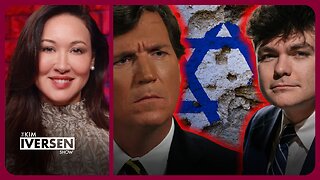 1:29:08
1:29:08
Kim Iversen
4 hours agoNick Fuentes & Tucker Carlson SQUASH Their ‘Fed’ Beef!
55.9K89 -
 LIVE
LIVE
SpartakusLIVE
11 hours agoREDSEC BATTLE ROYALE || Battlefield 6 w/ The Boys
230 watching -
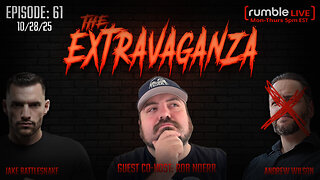 1:03:22
1:03:22
TheCrucible
3 hours agoThe Extravaganza! EP: 61 with Guest Co-Host: Rob Noerr (10/28/25)
61.3K7 -
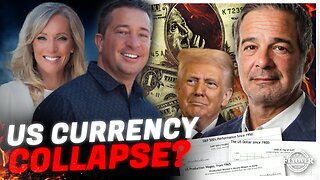 LIVE
LIVE
LFA TV
23 hours agoLIVE & BREAKING NEWS! | TUESDAY 10/28/25
614 watching -
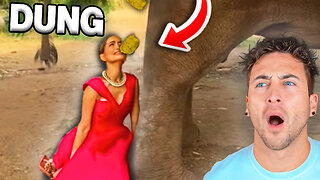 3:11:15
3:11:15
Nikko Ortiz
4 hours agoBATTLEFIELD 6 NEW BATTLE ROYAL REDSEC... |Rumble Live
2.92K2 -

StoneMountain64
10 hours agoBattlefield REDSEC Battle Royale GAMEPLAY & 1st Impressions (Free to Play LAUNCH DAY)
52.6K -
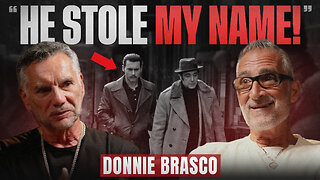 1:33:39
1:33:39
Michael Franzese
3 hours agoThe Real Donnie Brasco: REVEALS Why Joe Pistone Stole His Name
22.1K1 -
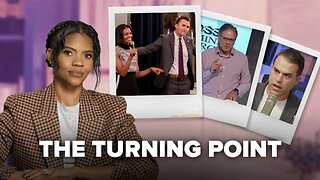 1:12:46
1:12:46
Candace Show Podcast
3 hours agoCharlie Ripped A Hole In Reality | Candace Ep 253
63.8K144 -
 LIVE
LIVE
Tundra Tactical
4 hours agoProfessional Gun Nerd Plays Battlefield 6
24 watching -
 LIVE
LIVE
NAG Daily
1 hour agoBOLDCHAT: with ANGELA BELCAMINO
25 watching